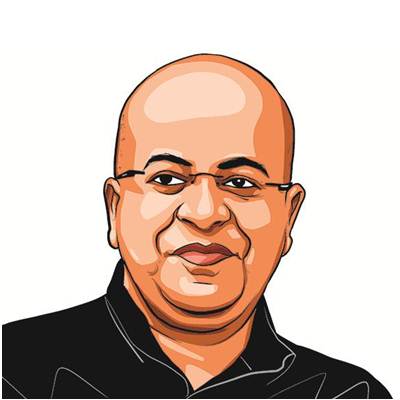Opinion IT Rules amendments: Calling government’s new fact-checking rules draconian is stretching concerns too far
The government has to set rules allowing fact-checking by the unit that it notifies and these rules have to be consistent with the provisions of freedom of expression as enshrined under the Constitution
 In the age of the internet and social media, fact-checking has become an essential tool to combat misinformation, propaganda, and fake news. (Representational/File)
In the age of the internet and social media, fact-checking has become an essential tool to combat misinformation, propaganda, and fake news. (Representational/File) On April 6, the Union government notified the Information Technology (Intermediary Guidelines and Digital Media Ethics Code) Amendment Rules, 2023 (IT Rules). This is the second amendment to the original IT Rules notified in February 2021, which was earlier amended on October 28, 2022.
Along with the soft touch approach of self-regulatory mechanism for the online gaming intermediaries, provisions of fact-checking of the information related to the central government were also notified. Thus, the amended 3(1)(v) of the IT Rules now reads as: “… the intermediary shall inform its rules and regulations, privacy policy and user agreement to the user in English or any language specified in the Eighth Schedule to the Constitution in the language of his choice and shall make reasonable efforts to cause the user of its computer resource not to host, display, upload, modify, publish, transmit, store, update or share any information that,— (v) deceives or misleads the addressee about the origin of the message or knowingly and intentionally communicates any misinformation or information which is patently false and untrue or misleading in nature; or, in respect of any business of the Central Government, is identified as fake or false or misleading by such fact check unit of the Central Government as the Ministry may, by notification published in the Official Gazette, specify.”
It is pertinent to mention here that the provision of fact-checking as related to central government information was not suddenly introduced but was notified in the draft amendments in mid-January this year whereby the Press Information Bureau (PIB) of the Ministry of Information & Broadcasting was proposed as the fact-checking body for such content. However, the government has now left open the unit that will undertake the fact-checking job.
In the age of the internet and social media, fact-checking has become an essential tool to combat misinformation, propaganda, and fake news. India, like many other countries, has seen a surge in online content in recent years, and with it, an increase in controversies related to fact-checking. With over 75 crore internet users, it becomes easier for misinformation to spread rapidly, leading to confusion, chaos, and sometimes even violence. The efforts so far, such as the dedicated fact-checking unit under the PIB that checks information that is disseminated through social media platforms as well those of the numerous independent fact-checking organisations in India like Boom and Alt News who have been at the forefront of exposing false information and propaganda on social media platforms has not yielded a comfortable position. However, challenges of attribution to the right source, the volume of information flowing, motivation of fact-checkers and absence of regulations remained a challenge.
With the passage of amendments to the IT Rules last week, the issue of regulations is being addressed proactively for government-related information. Clearly, the government is the best entity for checking and certifying facts related to its own information under normal situations. This is what it is elected for and governs on the same trust. However, this does not give it the freedom to stop criticism of its actions and neither do the IT Rules imply that anywhere.
The Editors Guild of India calling the new IT Rules draconian is stretching concerns too far. Fact-checking of non-government-related content, which is much wider and larger than government-related information remains out of the purview of the government and few organisations are doing their job. The recent reports of a few significant social media intermediaries trying to form an alliance and offering fact-checking for non-government-related content is a good approach as the conflict and controversies that arise around fact-checking would be reduced if they do a proactive job together. The global alliance of fact-checkers, International Fact-Checking Network (IFCN), is a good reference for such a step to be able to undertake fact-checking on a non-partisan basis.
The government has to set the rules allowing such fact-checking by the unit that it notifies and these rules have to be consistent with the provisions of the freedom of expression as enshrined under the Constitution. As a guidance, the provisions of content blocking and monitoring as provided under sections 69 and 69A of the Information Technology Amended Act 2008 and the constitution of inter-ministerial committees under the related rules for executing the blocking or monitoring would be quite pertinent. Prudently, the government has to have a fact-checking unit to operate transparently.
The writer is a cybersecurity analyst




